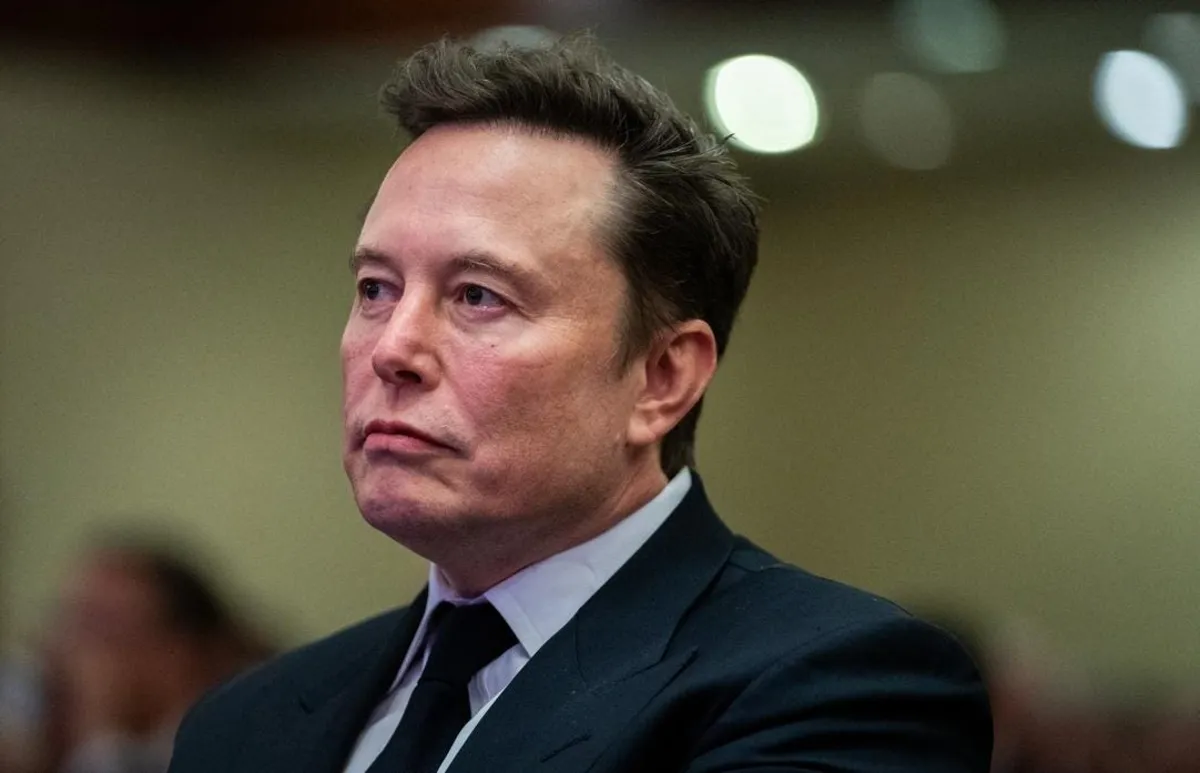
Shares of Tesla experienced a significant decline on Thursday morning, resulting in a staggering cut of over $17 billion to Elon Musk’s net worth. This drop followed Musk's warning that the automaker may face “a few rough quarters” ahead, primarily due to the impending expiration of federal electric vehicle tax credits.
According to Forbes, Musk's fortune is currently valued at approximately $397.3 billion, reflecting a more than 4% reduction in his net worth as of Thursday afternoon. This valuation highlights the substantial impact of Tesla's fluctuating stock price on Musk's overall wealth.
Analyst Alex Potter from Piper Sandler expressed concerns earlier this week regarding the potential repercussions of losing EV tax credits. He noted that Tesla had benefitted significantly, adding around $3.5 billion in “free money” in 2024 due to these credits. Despite this warning, Potter maintained an optimistic outlook, predicting only a “modest reduction” in credit revenue for 2025 and 2026, stating that there is “no need for drastic estimate revisions.”
On a similar note, Dan Ives from Wedbush Securities described the loss of EV tax credits as a potential “headwind” for both Tesla and its competitors. He emphasized that this revenue stream would become less impactful moving forward, indicating a shift in the financial landscape for electric vehicle manufacturers.
Tesla’s shares have declined by more than 12% this year. However, the stock showed signs of recovery in recent months after Musk stepped down from his role as a special government employee during the Trump administration. Some analysts, including those from William Blair, have criticized Musk’s ongoing political involvement, suggesting that investors may be “growing tired of the distraction.”
The recent strain on Tesla’s business comes in the wake of former President Trump signing his so-called “One Big Beautiful Bill,” which eliminated certain tax credits for consumers purchasing or leasing electric vehicles. Musk has publicly opposed these cuts, labeling them as “incredibly destructive” to the U.S. economy and previously expressed his belief that “we should get rid of all the credits” in December 2024.
During a recent investor call, Musk stated that Tesla aims to have full autonomous ride-hailing services available to half of the U.S. population by the end of 2025, contingent on obtaining the necessary regulatory approvals. This ambitious goal underscores Tesla's commitment to innovation in the electric vehicle sector.
For more insights, explore how Tesla faced its sharpest revenue slump in over a decade following a historic sales drop, as reported by Forbes. Understanding these developments is crucial for investors and stakeholders as they navigate the evolving landscape of the electric vehicle market.